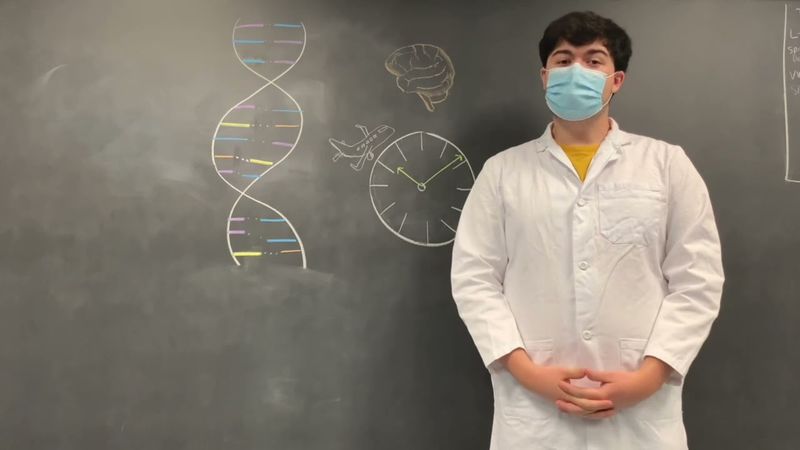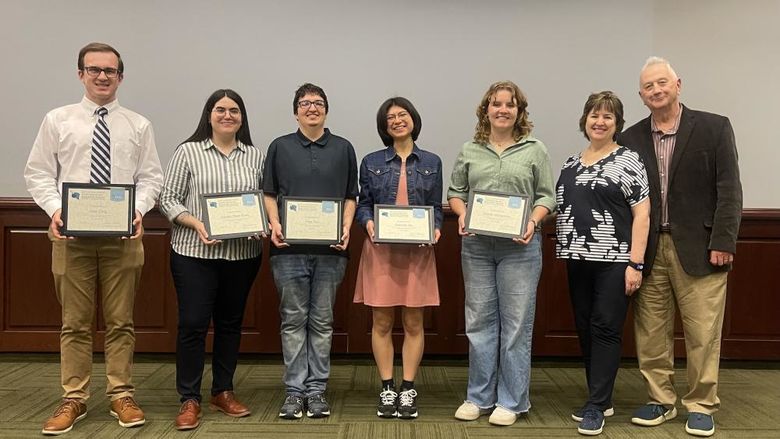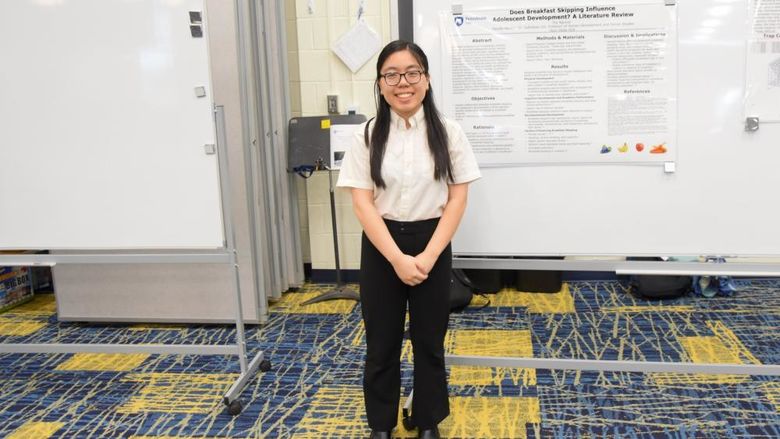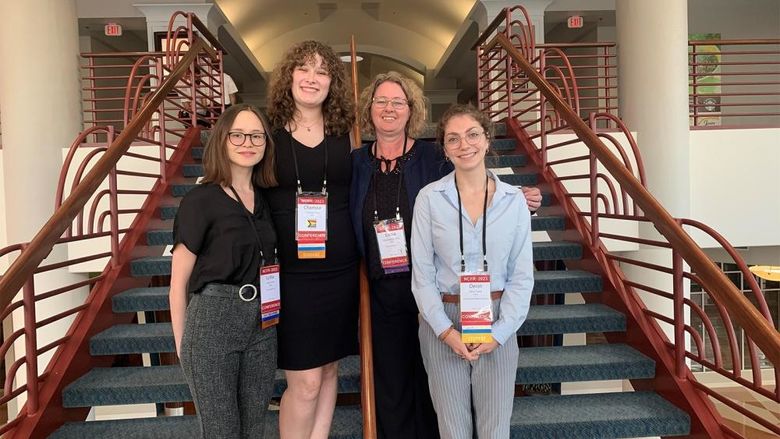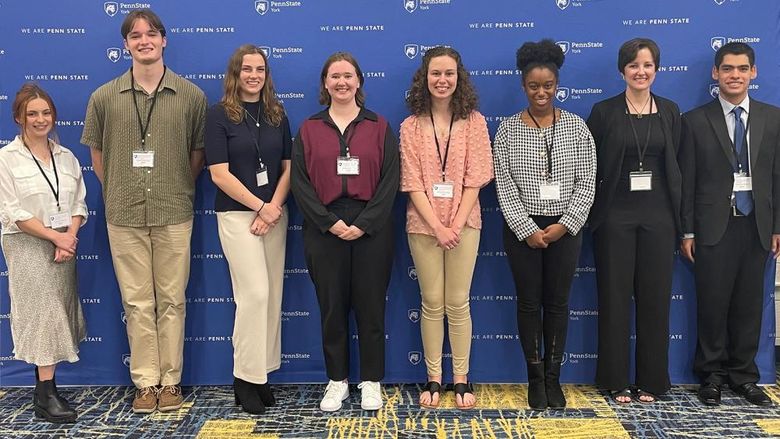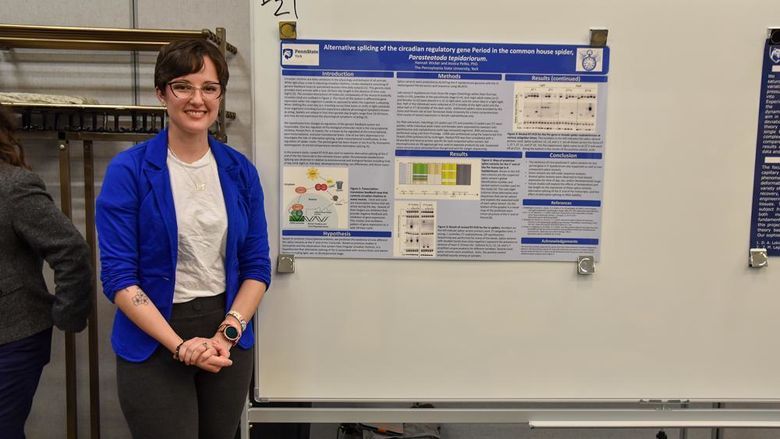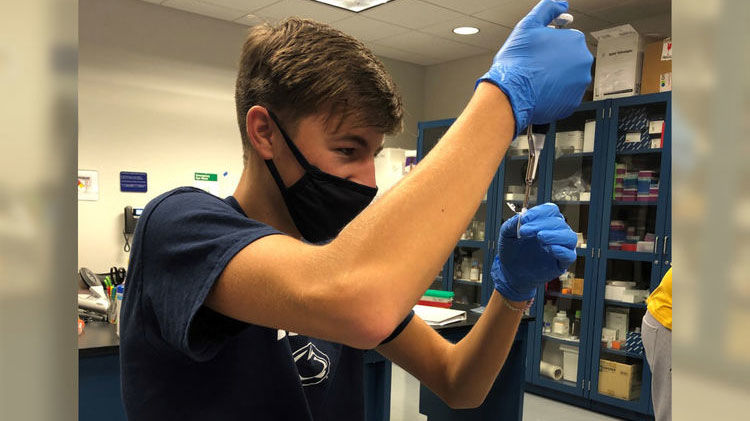
Logan Coomes, a biology student at Penn State York, works on molecular cloning of spider clock genes for the course BMB 442 Biochemistry and Molecular Biology. His work, along with that of his team, was featured in a video about the circadian rhythm of spiders, which won awards from The Science Coalition.
YORK, Pa. — Studying the circadian rhythm — or 24-hour internal 'clock' — of spiders and creating a video on the topic may not be something most people have considered. For Logan Coomes, a Penn State York student, and his team, their research and video earned a People’s Choice Award and a third-place finish in a national video competition, the Fund It Forward Student Video Challenge, sponsored by The Science Coalition.
Coomes and his team received a $500 award for the third-place finish and an additional $500 for the People’s Choice Award given to the video receiving the most votes.
A junior majoring in biology at the York campus, Coomes heard about the competition from Jessica Petko, associate professor of biology at Penn State York, and he was interested. A student in the Penn State York Honors Program, Coomes asked if he could do a project in Petko’s course, BMB 442 Biochemistry and Molecular Biology, and the work began. Petko had received an email from Alan Rieck, associate vice president and associate dean for Undergraduate Education, who leads undergraduate research initiatives offered through the Office of Undergraduate Education at the University Park campus, sharing information about the video challenge. The Science Coalition, of which Penn State is a member, has an undergraduate video competition in which students describe research going on at their university to show Congress why this research is important.
Petko’s research on spiders has been ongoing for about four years, and she has involved more than 20 undergraduate students in it. In addition to Coomes, Hunter Haggett, also a biology student at Penn State York who has done research with Petko, helped with the filming.
Since spiders have similar genes to humans, and with continued funding, Petko's team hopes to be able to determine how spiders can alter their circadian rhythm without experiencing “jet lag.” This could help understand and possibly prevent jet lag experienced in humans, according to the researchers.
“The purpose of the video was to examine the interactions of proteins involved in the regulation of the circadian rhythm in spiders,” said Coomes. “This will allow insight and understanding on how spiders can adjust their day length, without experiencing the side effects of this jet lag.”
The team's winning video can be viewed below.
Coomes has appreciated the support received from a variety of audiences and the opportunity to do undergraduate research and complete the video project.
“I appreciate Dr. Petko for showing me her research and helping me out along the way,” said Coomes. “The opportunity of entering the video competition and winning is something I am super grateful for, along with all the support to the people who voted. I gained a lot of experience working in the lab and performing the various techniques, such as PCR, transformation, restrictive digests, and many more. It was a neat experience to work with spiders and learn about some of the protein interactions that regulate their circadian rhythms and how it can relate to us, as humans.”
Coomes, from Stewartstown, Pennsylvania, is now pursuing research with F. Andrew Landis, associate professor of chemistry at the York campus, on dental polymers, and he aspires to attend dental school. He plans to take the Dental Admission Test this summer and begin applying to schools. He has a 4.0 grade-point average.
